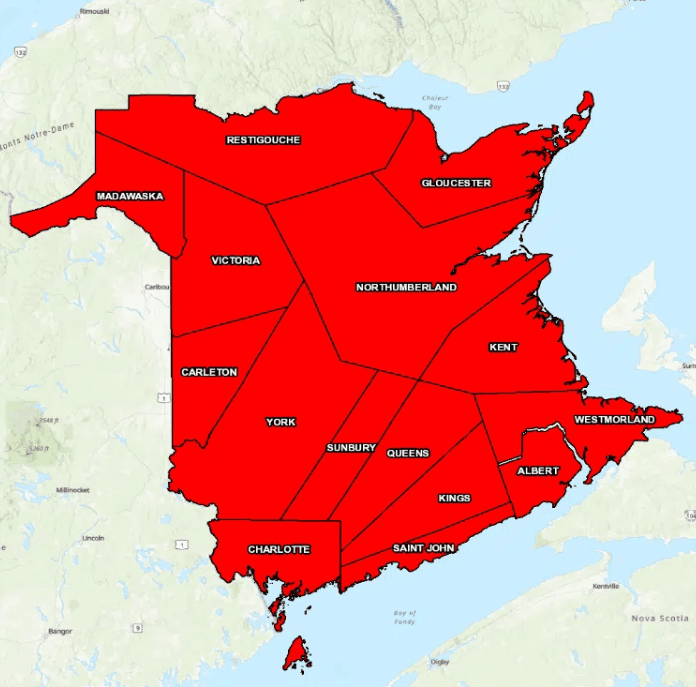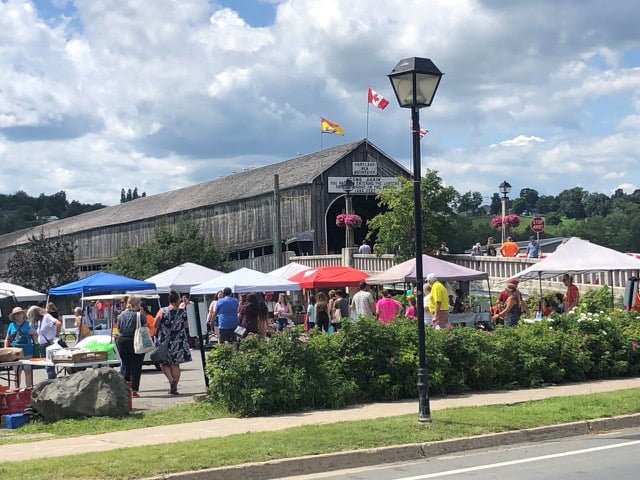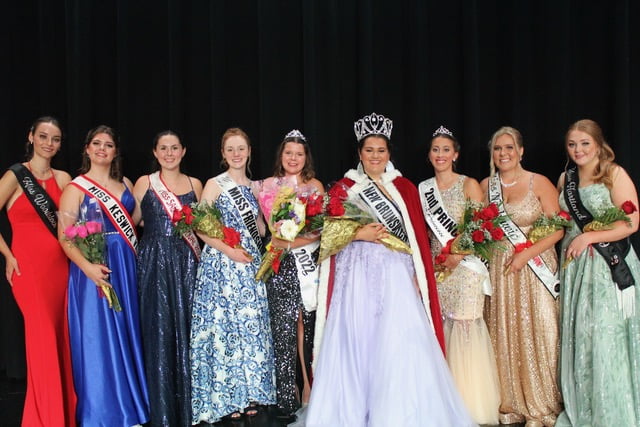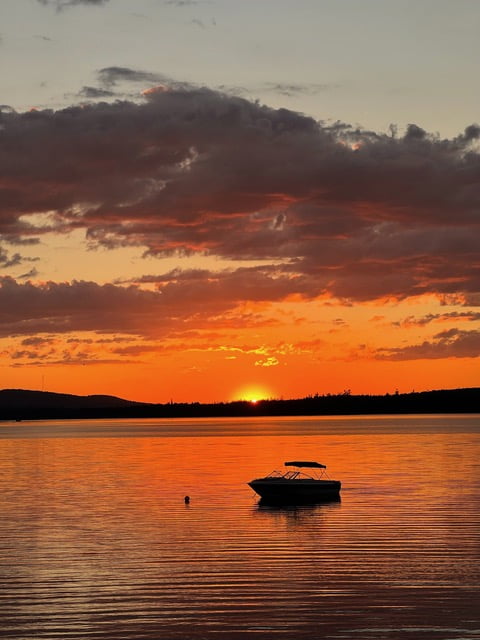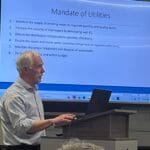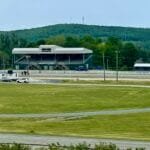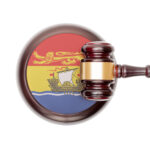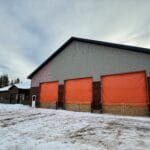New Brunswick closes Crown lands, asks private landowners to take same precautions
As of 12:01 a.m. on Sunday, Aug. 10, all Crown land in the province of New Brunswick will be closed to the public. The decision to cut off access to the province’s publicly owned forests will mean halting all industrial and recreational activities in the woods. People with camps on Crown land have until midnight to vacate.
Private land owners are also being encouraged to take the same precautions, and people are being asked to avoid using private wood lots and wood roads.
“This is an unprecedented situation, and it’s getting worse,” said Premier Susan Holt during a news conference on Saturday, Aug. 9. “We need to protect our province and our people.”
As of noon, Saturday, there were seven active fires across the province. All are under control, except for the fire in the Miramichi area.
“The Old Field Road fire… is a class six intensity, beyond control with our current resources,” said Minister of Natural Resources John Herron. “This does not mean we have a lack of resources. It means under the current environment, it doesn’t matter what we throw at it, at this point and time. It’s now approximately 240 hectares in size. To illustrate the growing concern, that is up from 160 hectares from this morning.”
The minister said the province is in an “extraordinary drying trend” with no significant rainfall since early July.
“We’re looking at 50 to 75 per cent less precipitation than normal in most areas of the province,” said Herron, noting that the forecasts aren’t calling for any real weather relief until Aug. 17 to 19. He said that the province hasn’t seen these kinds of conditions since 1986.
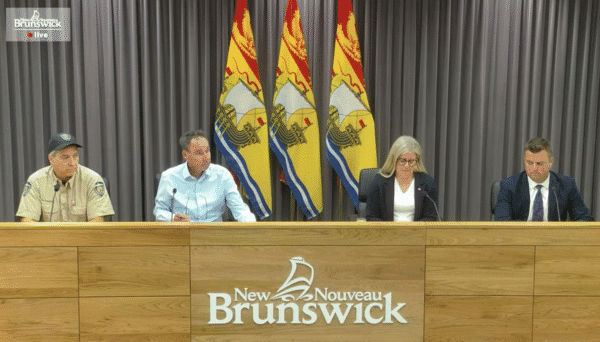
“Normally, we have 30 minutes (to get to a fire before it gets out of control). Given how dry our forests are today, if we don’t get to it in five to ten minutes, it can get out of hand quickly,” said Minister Herron.
Along with the province’s fleet of air tankers, it also has two skimmer planes from Quebec in action that can land on and scoop water from lakes or other bodies of water, then drop it on wildfires. New Brunswickers are asked to stay away if they see these planes near water for the safety of the pilots and themselves. The province is in a long-term drying trend. This means lower humidity and high temperatures will continue into the end of next week.
On Friday, the Department of Natural Resources banned forestry operations like harvesting, forwarding, skidding, scarification, chipping, and pre-commercial thinning on forested Crown and private lands across New Brunswick. That ban is in effect until midnight, Aug. 12.
Premier Susan Holt said it’s extremely important for New Brunswickers to look after one another and to keep safety top of mind during this period of prolonged wildfire risk.
“The entire province is in an unprecedented situation,” said Holt. “I know that New Brunswickers deeply care for one another and love our forests and beautiful natural environment. Right now, we need New Brunswickers to help keep our people and our province safe.”
New Brunswick Minister of Justice, Rob McKee, spoke on behalf of Public Safety Minister Robert Gauvin. Gauvin was away, but is now headed back to New Brunswick. McKee encouraged people to be prepared and make a plan.
“Although no evacuation order was given, each home should have an evacuation plan and an emergency preparedness kit,” McKee said. “Follow the news, consult with the fire index website, don’t even throw cigarette (butts) out the window.”
Minister McKee noted that the EMO raised its activation level to Level 2 earlier today and that the province’s emergency committee started its twice-daily briefings today.
“Some power lines near the (Miramichi) fire have been deactivated for safety reasons. Fire is a risk to cell towers, but we have no reports of loss of service at this time,” said McKee. He noted that Route 8 between Route 450 and the Oldfield Road remains closed, and people could call 511 or visit 511.gnb.ca for road closure updates.
“The threshold for using the Alert Ready system has not been met, but we are prepared to use the emergency messaging if needed,” added McKee.
The restrictions on Crown land, effective as of 12:01 a.m. on Aug. 10, include:
- hiking, camping, fishing and the use of vehicles in the woods are not permitted
- trail systems through the woods are off limits
- camping is allowed only in campgrounds, but the public is being asked to reconsider their camping plans until such time as the forest fire risk decreases
Premier Holt said she wanted to recognize the teams of people who are out fighting the fires and supporting the efforts to keep everyone safe. She also thanked New Brunswickers.
“Thanks to those who have changed your plans, covered fire pits, and made sacrifices to keep New Brunswickers safe,” she said. “I’m sure it’s frustrating to think, look, I just want to go for a walk in the woods with my dog. But if those woods become a forest fire, then you and your dog are at risk, and that puts an extra burden on our firefighters, so we are asking you to choose to keep our firefighters safe and to keep our province safe.”
While Holt did not announce any new or increased fines for people caught using Crown lands during the closure, she did note that the current New Brunswick Forest Act does have a fine structure. Violations can result in fines from $500 to $10,000, depending on the severity of the offence, and, if someone is found to have caused a fire, they can be liable to pay the cost of putting out the fire, up to $250,000. Nova Scotia announced a woodland ban last week, and a fine of $25,000 for people found to be violating the restrictions.
A burn ban remains in place for the entire province, including all provincial parks. Up-to-date information on wildfire risks and burn bans is available at gnb.ca/firewatch.
More information on fire prevention is available online on the GNB website.


